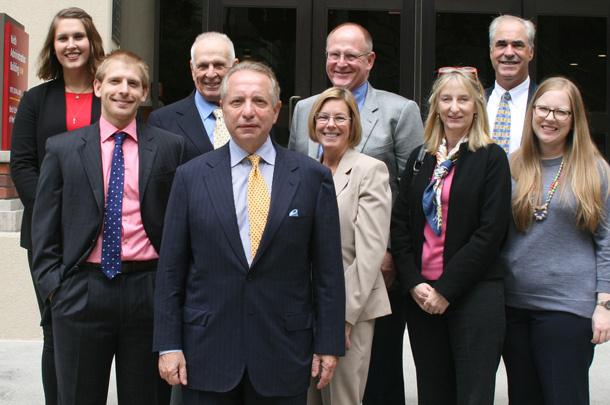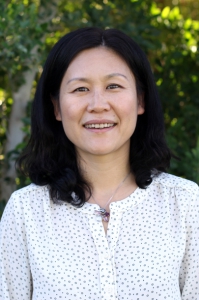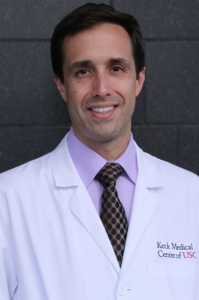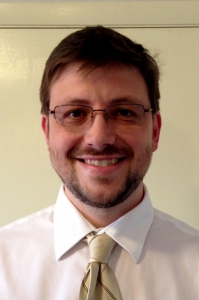The Donald E. and Delia B. Baxter Foundation has awarded $100,000 to students from the Keck School of Medicine of USC in its summer research fellowship program.
The Baxter Foundation also provides annual funding for research by junior faculty members at the Keck School, and this year’s recipients are Min Yu, MD, PhD, from Stem Cell Biology and Regenerative Medicine; Jon-Paul Pepper, MD, from Otolaryngology – Head and Neck Surgery; and Kevin S. King, MD, from Radiology.
Yu will use her award to make progress toward new approaches in the treatment of patients with breast cancer, which causes more than 40,000 deaths a year. Most of these deaths occur when the cancer metastasizes, or travels through the blood circulation and establishes new tumors in organs such as the bones, lungs, brain and ovaries.
Yu’s approach involves drawing blood from a cancer patient, filtering out the rare circulating tumor cells (CTCs) and allowing these cells to multiply in the laboratory. She is now making progress toward identifying what she believes are the most lethal subset of CTCs, called metastatic cancer stem cells (MCSCs). Some of these MCSCs show a propensity for establishing metastatic tumors in one organ as opposed to another — bone as opposed to lungs, for example.
To better understand these metastatic patterns, Yu is studying characteristics of MCSCs, including their genes and the “on-off switches” for their genes, called epigenetic regulators.
“This pilot study will accumulate crucial pilot information on the epigenetic regulation of metastasis,” said Yu. “I am grateful to the Baxter Foundation for supporting my initial research phase and allowing me to conduct this innovative and high-impact research, which will in turn enable me to apply for more competitive grants with the goal of deriving novel therapeutic strategies targeting breast cancer metastasis in the near future.”
Pepper, who is both a practicing facial plastic surgeon and USC Stem Cell principal investigator, is developing a stem cell-based treatment for nerve injuries that cause weakness or paralysis. He’s collaborating with 2014 Baxter Foundation Fellow Justin Ichida, an assistant professor of stem cell biology and regenerative medicine.
Knowing that muscles can permanently atrophy without a nerve supply, Pepper is injecting stem cell-derived nerve cells into mice with sciatic nerve injuries. These stem cell-derived nerve cells provide temporary input and support to the muscles while the native nerves heal, and have enabled injured animals to retain the muscular strength of injured animals.
“This is an exciting frontier in tissue engineering, and it is important technology for my surgical subspecialty,” said Pepper, who is also enrolled in USC’s new master of science in stem cell biology and regenerative medicine program. “I believe that the problem of facial nerve paralysis, to which I dedicate the majority of my clinical practice, is particularly well-suited to this therapeutic approach.”
As a practicing neuroradiologist and researcher, King is pioneering new approaches to understanding dementia and cognitive decline, which he believes can result from decreased blood flow to the brain.
To test this hypothesis, King will use a sophisticated imaging tool called functional Magnetic Resonance Imaging (fMRI) to assess the health and responsiveness of the blood vessels in the brains of 160 people in response to inhaling low levels of carbon dioxide. Over the course of the next three years, he will follow up with the patients to determine whether the unresponsive brain blood vessels predict future cognitive decline and dementia.
“I have invested a great deal of personal time and effort in developing my research question and the ideal methodology to pursue it,” said King. “I would not be able to pursue this work, however, without Baxter funding. With this crucial funding, I will be able to move forward on plans to pursue my research and form key collaborations with the USC Alzheimer’s Disease Research Center and Atherosclerosis Research Unit. The Baxter award has special meaning in the USC research community, as applicants must not only pass scientific review but also clearly demonstrate the societal impact of the proposed work to the Baxter Foundation members.”
Since 1959, the Donald E. and Delia B. Baxter Foundation has supported USC medical students and young investigators as they embark on their careers, start independent laboratories and perform the innovative research that will eventually benefit patients.
According to foundation president Donald Haake, “By supporting new researchers and medical students during the early stage of their careers, we are advancing the innovative medical research that is key to a healthier future.”
The Baxter Foundation’s mission is to advance charitable, scientific and educational purposes, primarily at medical and scientific schools in California.
— Cristy Lytal





